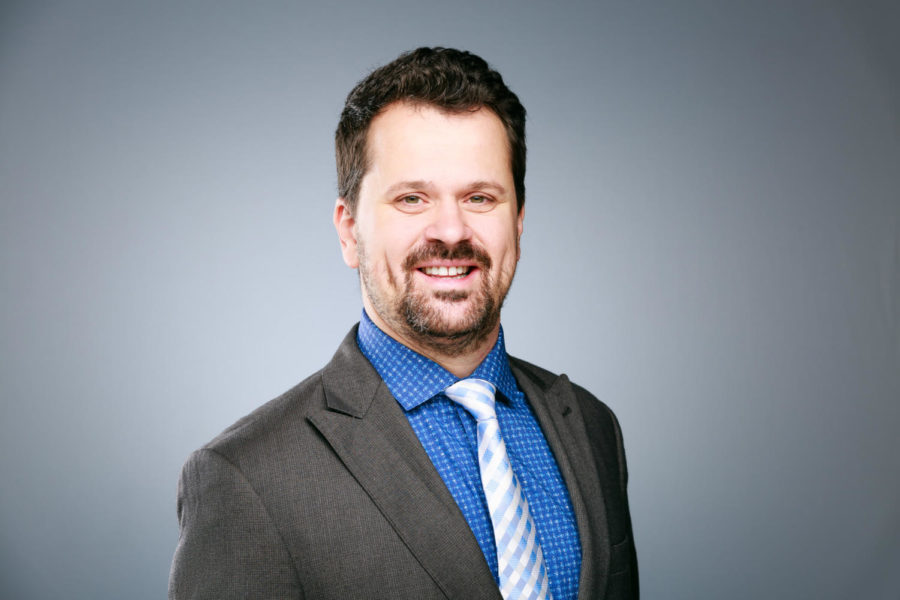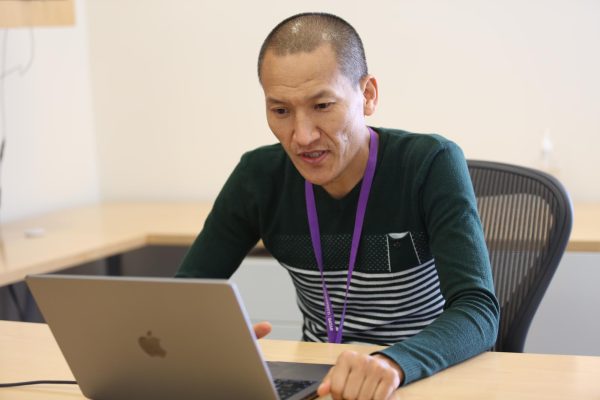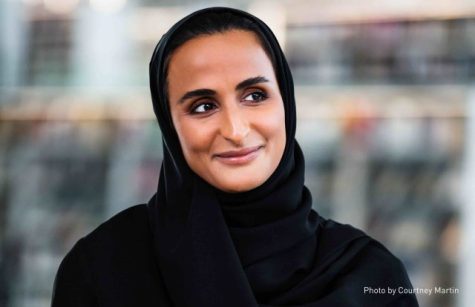Faculty Profile: NU-Q’s new philosophy professor, Torsten Menge
Torsten Menge, a new assistant professor in residence in the liberal arts program at Northwestern University in Qatar, was born in Berlin, Germany at a time when the Berlin Wall was still standing. He remembers his childhood in East Germany as being “monochromatic.”
“I don’t know if it’s because the pictures are in black and white, or maybe because before the fall of the wall things seemed gray,” he said. “After its fall, things became more colorful and neon, perhaps because the society opened up to the rest of the world and bright Western ads and colorful storefronts started appearing.”
Menge’s first political memory was the fall of the Berlin Wall. He said that at the time he did not get a lot of explanation about it, mainly because the adults around him were trying to understand the changing society themselves.
“My parents were mathematicians by education but they worked in information technology,” he said. “It worked out well for them because after the wall came down, they still had jobs while some of our relatives in the rural areas were left jobless and with degrees that were no longer recognized.” He added that although his parents were lucky, they were also very skeptical of the changes occurring around them.
This was the shifting society in which Menge grew up as a teenager. He said that he would often have discussions with his friends about questions they had regarding German society and social reforms. But as teenagers, they had little knowledge of what they were talking about.
“I don’t remember exactly what my questions were but I think they were narrow and naïve,” he said. “But when I look back, I think it was motivating me to seek answers because you question what people mean when they say words like socialism or capitalism.”
He decided to find these answers by studying philosophy. After reading multiple books on philosophy in high school, Menge decided to pursue it as a major at college.
The fact that philosophy answered questions and raised more at the same time fascinated him about the subject. “I grew up in a society that doesn’t exist anymore, so people had questions about it, which they would ask through philosophical dialogue,” he said. It was this inquisitiveness that attracted Menge to the subject the most.
People misunderstand the subject by seeing it as a canon of teachings about other’s people thoughts and beliefs that they have to outright accept, Menge said.
“Philosophy is a kind of activity that you engage in where you become aware of your implicit assumptions and beliefs,” he clarified. “We often only consider one view throughout our life, and through philosophy, we can understand that there are different views for us to consider.”
For Menge, philosophy is the tool through which people can learn to think and rationalize for themselves. In a world full of intrigue and propaganda, it is necessary for one to be able to think for themselves instead of always adopting the viewpoint of others.
“We can’t get rid of all the assumptions and opinions of others that influence us, but we must learn how to critically challenge these ideas, and that is what philosophy teaches,” he said.
After completing his master’s degree in philosophy and a minor in combined political and social science from Humboldt University of Berlin, Menge enrolled in Georgetown University in Washington D.C. for a doctorate in philosophy. There he began to listen to and understand a larger variety of opinions.
“In Germany, I grew up with privilege,” he said, referencing his “excellent” high school and college education and study abroad experience. “I grew up in a solid, middle-class family. We weren’t particularly rich but I had everything I needed.”
“I didn’t experience a lot of injustice. I was more inquisitive and liked to think about things. Perhaps that is why I was interested in academic philosophy. The problem with it is that it is often not informed by direct struggles.”
After seeing different social justice movements within Georgetown University, Menge said he began to better understand the concepts behind philosophy.
“One of the movements that happened when I got there was that the university…..opened up an LGBT resource center, upon the demand of its students,” he said.
Another event that impacted him: Georgetown’s efforts to make amends to the descendants of the enslaved persons who had been sold to the university in 1838; he said he found this acknowledgment of the past and willingness to improve inspirational.
Menge’s said his love for academics and philosophy ultimately led him to his career path.
“I liked that in grad school, time was my privilege. I could do research and think about the issues. I knew I wanted to continue doing this,” he said. “Other jobs may have practical requirements that strain them, such as making profit for your company, but as a professor, your time is protected by any of that, in the hope that what you do would be beneficial for others.”
Menge joined Northwestern University in Qatar in Fall 2017. Initially, he wasn’t sure whether he wanted to leave the University of Arkansas, where he worked as an assistant professor from August 2016 to June 2017. But he was up for a new challenge.
“It takes a while to get to know people,” he said, referring to his cultural adjustment in Qatar. He added that he has not failed to notice that he is surrounded by students and faculty who have either come from Western countries or have attained Western education. “My colleagues here are very inquisitive and interesting with their various interdisciplinary fields. Even the students in my class are curious and intelligent, often asking questions and voicing their opinions. But so far, it feels a bit like being in a bubble.”
“But ultimately,” he said, “coming to Doha and to NU-Q is like going on a new adventure.”













